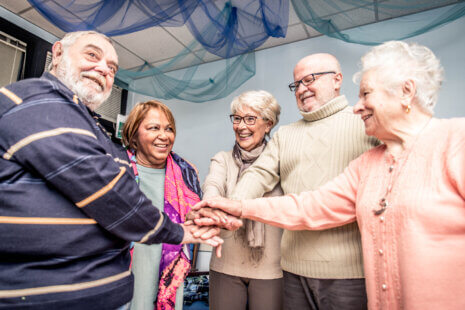In today’s fast-paced society, the role of seniors is often underestimated, with many overlooking the vast reservoir of knowledge, skills, and life experiences that older adults possess. As the global population ages, it’s increasingly important to acknowledge and utilize these valuable resources. One of the most impactful ways to engage seniors and help them continue to contribute meaningfully to society is through volunteering. This practice not only enriches the community but also enhances the well-being of the seniors themselves.
The Value of Experience
Senior volunteers bring a unique set of advantages to the table. Their years of work have often imbued them with patience, wisdom, and specialized skills that can be invaluable in a volunteer setting. Whether it’s mentoring younger generations, advising non-profit organizations, or providing customer service in a community center, their experience can translate into more effective, empathetic service.
Additionally, seniors often have a broader perspective on life and a deep sense of community, which can foster stronger interpersonal relationships within volunteer settings. These qualities make them excellent role models and advisors, particularly in roles that require mediation, counseling, or education.
Health Benefits of Volunteering
Volunteering offers significant health benefits for seniors, both mentally and physically. Engaging in volunteer work helps older adults maintain their social networks, which is crucial in combating loneliness and depression—a common issue among the elderly. According to studies, volunteering can enhance a senior’s mental health by keeping their mind active and engaged, thereupon reducing the risk of dementia and depression.
Physically, the act of volunteering can help keep seniors active, improving their overall mobility and stamina. This is particularly true for volunteer roles that involve physical activities, like participating in community clean-ups or assisting in building homes for needy families.
Economic and Social Contributions
Seniors contribute significantly to the economy through volunteering, providing unpaid but valuable labor that helps non-profits and community organizations operate more effectively. Their volunteering efforts help ensure that these organizations can offer services and support to those in need at minimal to no cost.
Furthermore, when seniors volunteer, they help bridge the gap between generations. They pass on traditional skills and knowledge that might otherwise be lost, and provide a historical perspective that can add richness and depth to community programs and initiatives.
Strategies for Effective Engagement
To maximize the benefits of senior volunteering, it’s crucial for organizations to engage these individuals effectively. Here are some strategies:
- Skill-based Volunteering: Align volunteer roles with a senior’s professional background or interests. This not only leverages their expertise but also makes the volunteering experience more fulfilling for them.
- Flexible Scheduling: Many seniors are willing to volunteer but may have limitations regarding their availability or physical capabilities. Offering flexible scheduling or remote volunteering options can help accommodate their needs.
- Continuous Education: Provide training and learning opportunities that can help seniors feel more confident and valued. Workshops on the latest developments in their field of interest or training on new technologies can be particularly beneficial.
- Social Opportunities: Create roles that allow for social interaction. Volunteering is a wonderful way for seniors to build relationships with like-minded individuals, which is essential for their social well-being.
- Show Appreciation: Regular recognition of their efforts can go a long way in making seniors feel appreciated. This can be through awards, thank-you events, or even public acknowledgments of their contributions.
Overcoming Challenges
While there are numerous benefits to senior volunteering, there are also challenges that need to be addressed. These include physical limitations, health issues, or transportation difficulties. By understanding and planning for these challenges, organizations can better support senior volunteers and enhance their volunteering experience.
Organizations might also consider partnering with healthcare providers to offer health assessments and services that cater specifically to seniors. Additionally, providing transportation services or arranging for volunteers to team up for travel can help alleviate travel concerns.
Conclusion
Seniors have a treasure trove of knowledge, skills, and experiences that, when effectively harnessed through volunteering, can significantly benefit both the community and the seniors themselves. Not only does volunteering provide them with a sense of purpose and belonging, but it also promotes healthier living—both mentally and physically.
By adapting opportunities and environments to meet the needs and skills of senior volunteers, society can fully embrace and benefit from the vintage advantage. This thoughtful integration of senior experience not only enhances the effectiveness of community services but also enriches our social fabric through the invaluable contributions of our elder community members.



